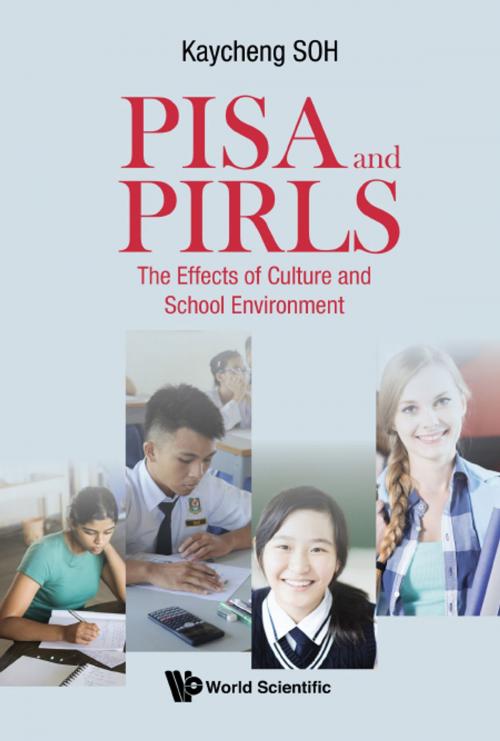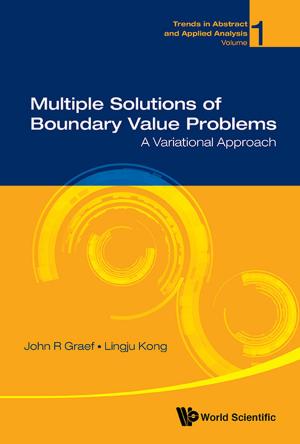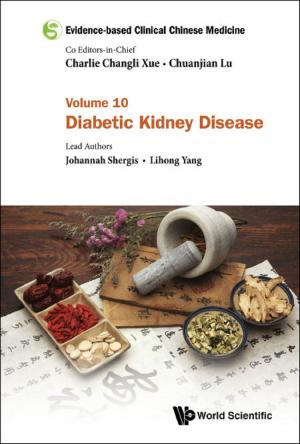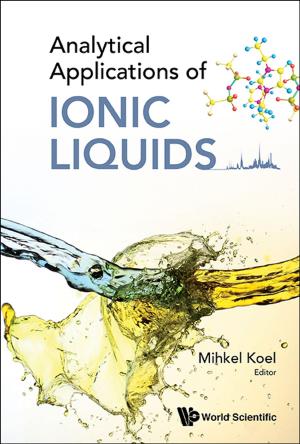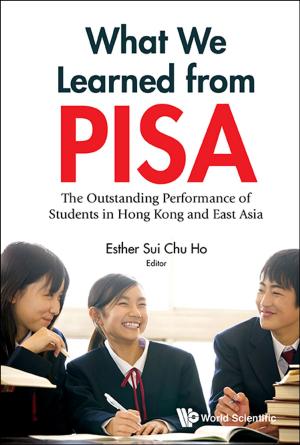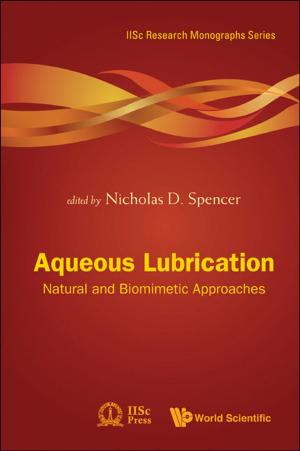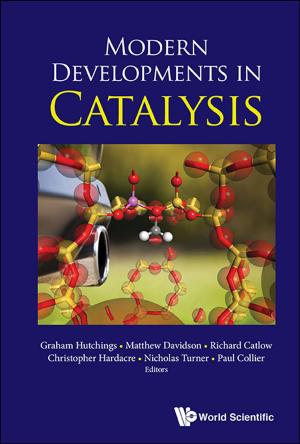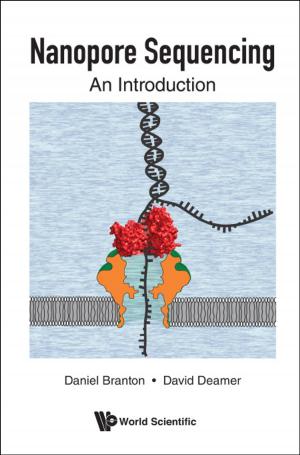PISA and PIRLS
The Effects of Culture and School Environment
Nonfiction, Reference & Language, Education & Teaching, Special Education, Experimental Methods, Educational Theory, Evaluation| Author: | Kaycheng Soh | ISBN: | 9789813276550 |
| Publisher: | World Scientific Publishing Company | Publication: | December 28, 2018 |
| Imprint: | WSPC | Language: | English |
| Author: | Kaycheng Soh |
| ISBN: | 9789813276550 |
| Publisher: | World Scientific Publishing Company |
| Publication: | December 28, 2018 |
| Imprint: | WSPC |
| Language: | English |
International comparative studies of student achievement have caught the attention of governments, policy-makers, school leaders and educational researchers globally. They have become benchmarks of education for countries in the world and provide a broad perspective for countries to evaluate their education achievement. However, culture and school environment are two critical factors affecting educational achievement that deserve careful consideration and re-interpretation. This book brings light to these conceptual and methodological issues.
The 14 articles in this book deal with various aspects of the Programme for International Student Assessment (PISA) and the Progress in International Reading Literacy Study (PIRLS), including cultural and social environments, principals' roles and views, achievements in Reading, Science, and Mathematics, and the trustworthiness of international comparisons. The articles use PISA and PIRLS data to present new insights and interpretations of international surveys. These insights will help educators, administrators, and policy-makers understand the working mechanisms of their school systems and the relationships between students' achievement and the culture and school environment they are in.
This book is a companion volume to the author's earlier publication — PISA: Issues and Effects in Singapore, East Asia, and the World (World Scientific, 2017).
Contents:
-
About the Author
-
Prologue
-
Part I: Cultural and Social Environment:
- The Influence of Culture on Academic Achievement: Illustration Using PISA 2009 Data
- Social Environments for Learning in Finland and Singapore: Perceptions of Students and Principals in PISA 2009
-
Part II: Principals' Roles and Views:
- Principals as Instructional Leaders? A Lesson from the PIRLS 2011
- Principals' Leadership and Views on Teachers and Students in PISA 2012: Comparisons between OECD Members and Partners
-
Part III: Reading, Science, and Mathematics:
- PIRLS 2011 Reading and the Effects of Home, School, and Classroom Factors: Confirming and Contradicting Findings
- Reading Achievement, Materials, Times, and Purposes in PISA 2010: Comparing OECD Members and Partners
- Reading Competencies as Predictors of Science Achievement: Lessons from PISA 2009 Data
- Reading Competencies as Predictors of Mathematics Achievement: Lessons from PISA 2009
- Collaborative Problem Solving in PISA 2015: Highlights and Reflections
- PISA's New Venture in Creative Thinking: Some Conceptual and Methodological Concerns
-
Part IV: Trustworthiness of International Comparisons:
- Readability of PISA Reading Tasks as a Predictor of Reading Performance
- Ecological Fallacy in Predicting Reading Achievement: The Case of PIRLS
- Mathematics Achievement and Interest Negatively Correlated
- Does Ranking Tell the Truth in International Academic Comparisons? An Example from PISA 2012 and 2015
-
Epilogue
Readership: School principals, teachers, and policy-makers at the national level. Postgraduate students reseraching on educational systems and environments. Parents concerned with cultural and organizational factors affecting student achievement.
Key Features:
- The articles are all based on re-analysis of extent data of PISA
- PISA has an influence on educational policies and practices over the world and hence proper interpretation is critical
- PISA has included aspects of education other than just achievements in the three subjects, these deserve further consideration and caution
International comparative studies of student achievement have caught the attention of governments, policy-makers, school leaders and educational researchers globally. They have become benchmarks of education for countries in the world and provide a broad perspective for countries to evaluate their education achievement. However, culture and school environment are two critical factors affecting educational achievement that deserve careful consideration and re-interpretation. This book brings light to these conceptual and methodological issues.
The 14 articles in this book deal with various aspects of the Programme for International Student Assessment (PISA) and the Progress in International Reading Literacy Study (PIRLS), including cultural and social environments, principals' roles and views, achievements in Reading, Science, and Mathematics, and the trustworthiness of international comparisons. The articles use PISA and PIRLS data to present new insights and interpretations of international surveys. These insights will help educators, administrators, and policy-makers understand the working mechanisms of their school systems and the relationships between students' achievement and the culture and school environment they are in.
This book is a companion volume to the author's earlier publication — PISA: Issues and Effects in Singapore, East Asia, and the World (World Scientific, 2017).
Contents:
-
About the Author
-
Prologue
-
Part I: Cultural and Social Environment:
- The Influence of Culture on Academic Achievement: Illustration Using PISA 2009 Data
- Social Environments for Learning in Finland and Singapore: Perceptions of Students and Principals in PISA 2009
-
Part II: Principals' Roles and Views:
- Principals as Instructional Leaders? A Lesson from the PIRLS 2011
- Principals' Leadership and Views on Teachers and Students in PISA 2012: Comparisons between OECD Members and Partners
-
Part III: Reading, Science, and Mathematics:
- PIRLS 2011 Reading and the Effects of Home, School, and Classroom Factors: Confirming and Contradicting Findings
- Reading Achievement, Materials, Times, and Purposes in PISA 2010: Comparing OECD Members and Partners
- Reading Competencies as Predictors of Science Achievement: Lessons from PISA 2009 Data
- Reading Competencies as Predictors of Mathematics Achievement: Lessons from PISA 2009
- Collaborative Problem Solving in PISA 2015: Highlights and Reflections
- PISA's New Venture in Creative Thinking: Some Conceptual and Methodological Concerns
-
Part IV: Trustworthiness of International Comparisons:
- Readability of PISA Reading Tasks as a Predictor of Reading Performance
- Ecological Fallacy in Predicting Reading Achievement: The Case of PIRLS
- Mathematics Achievement and Interest Negatively Correlated
- Does Ranking Tell the Truth in International Academic Comparisons? An Example from PISA 2012 and 2015
-
Epilogue
Readership: School principals, teachers, and policy-makers at the national level. Postgraduate students reseraching on educational systems and environments. Parents concerned with cultural and organizational factors affecting student achievement.
Key Features:
- The articles are all based on re-analysis of extent data of PISA
- PISA has an influence on educational policies and practices over the world and hence proper interpretation is critical
- PISA has included aspects of education other than just achievements in the three subjects, these deserve further consideration and caution
